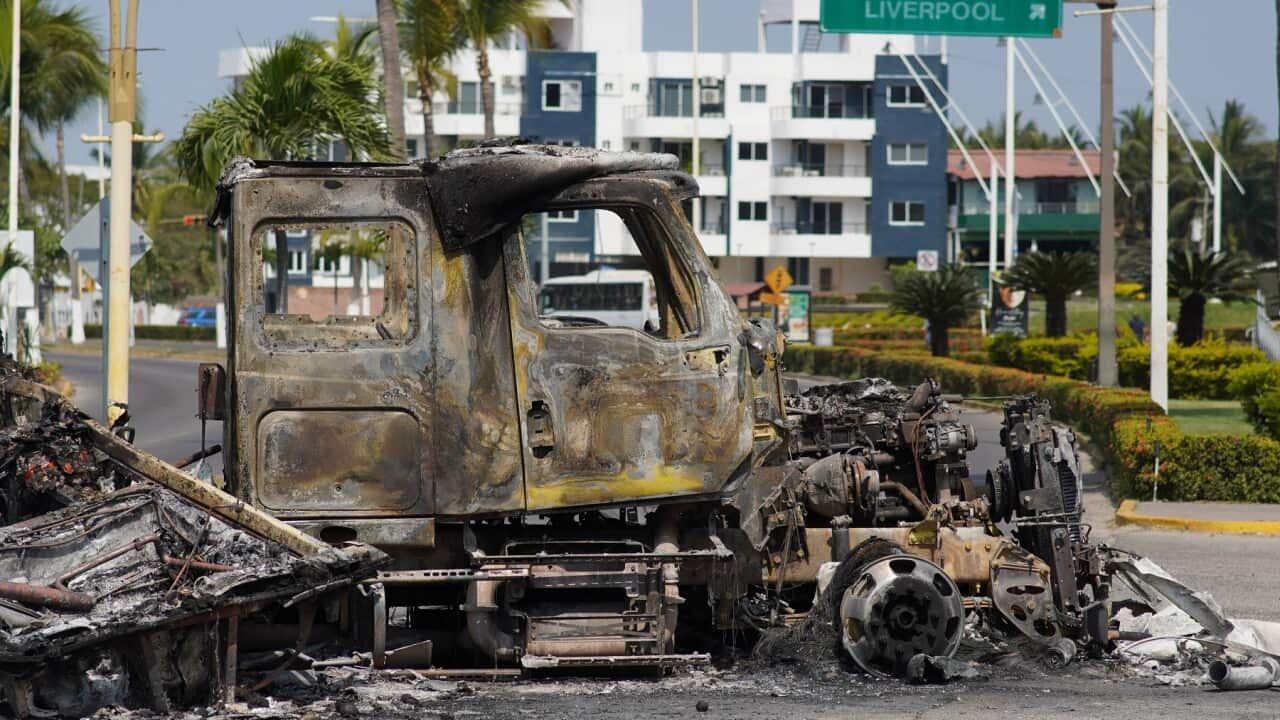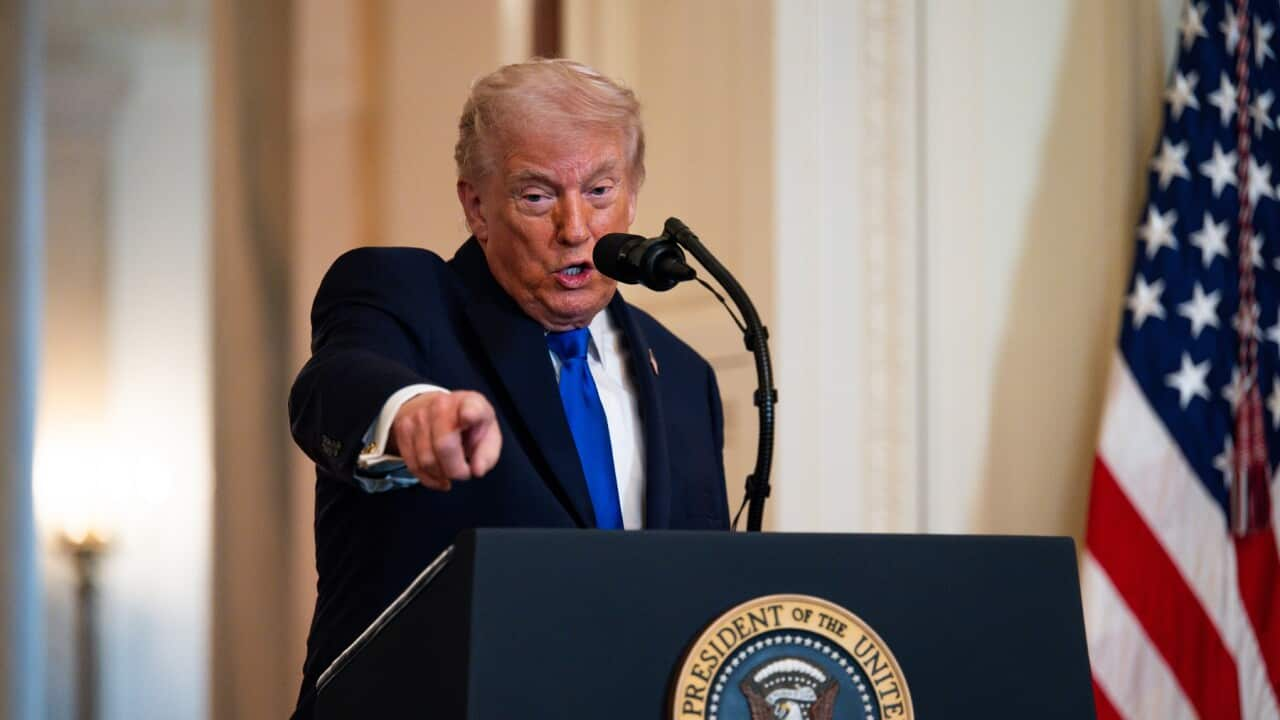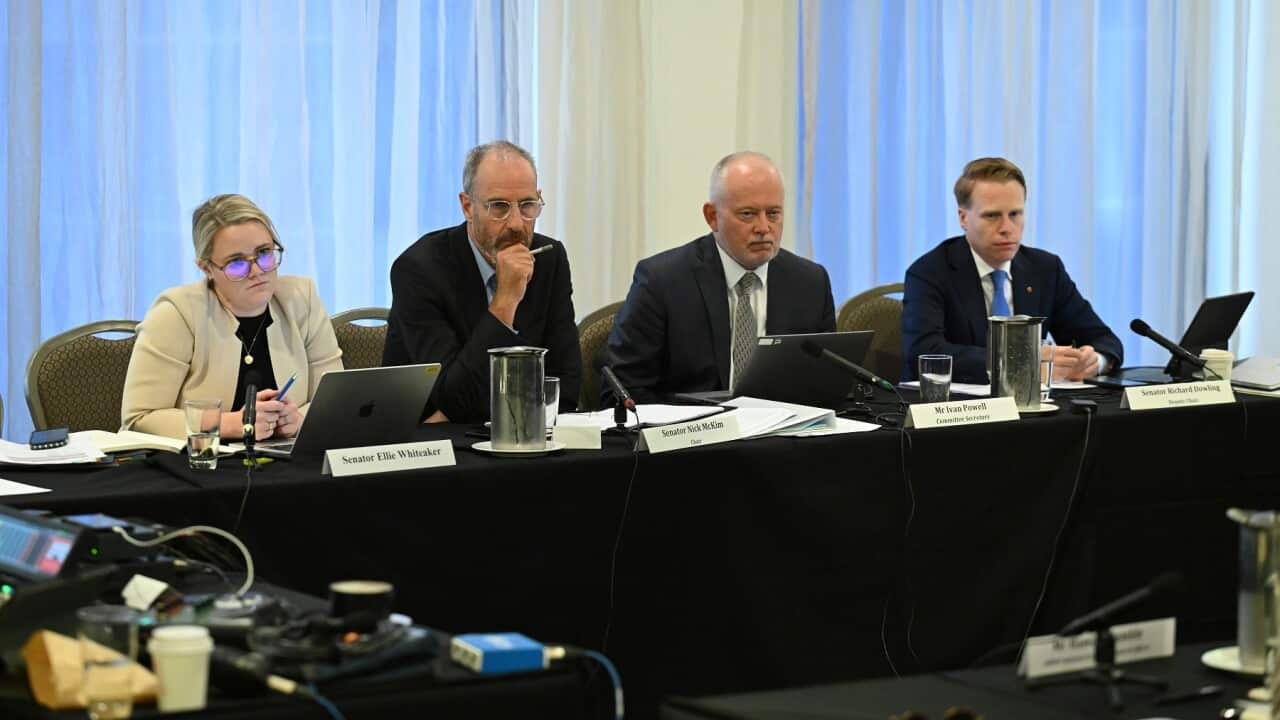Listen to Australian and world news, and follow trending topics with SBS News Podcasts.
TRANSCRIPT
"This summit is therefore closed." (Applause)
The first G-20 summit to be held on the African continent has ended
South African President Cyril Ramaphosa hailed the meeting of the leaders of the world's major economies as a triumph for multilateralism - securing agreement from most of them on a joint declaration.
"The G20 South Africa's summit leaders' declaration is more than words. It is a commitment to concrete actions that will improve the lives of people in every part of the world. More than that. It reaffirms our renewed commitment to multilateral cooperation and our recognition that our shared goals outweigh our differences.”
But there was one very notable absence.
The United States boycotted the summit, citing a widely discredited claim that South Africa's white minority is the victim of persecution.
The Trump administration also criticised the joint declaration, for its priorities such as cooperation on trade and climate.
The snub was received with ambivalence at the summit, with several leaders, such as Canada's Prime Minister Mark Carney, noting the growing importance of emerging economies from Africa, Asia and Latin America.
Brazil's President Luiz Inacio Lula da Silva said President Donald Trump's style of unilateralism would prove wrong.
"President Trump has been demonstrating this for several months now. He has already withdrawn from UNESCO and the World Trade Organization. He is attempting to preach the end of multilateralism in practice, trying to strengthen unilateralism. I believe multilateralism will prevail ... If anyone imagined that they could weaken multilateralism, these events, both the COP and the G20 here in South Africa, demonstrate that multilateralism is more than alive."
French President Emmanuel Macron warned cryptically that "the G20 may be coming to the end of a cycle".
But the Brazilian President's view was shared by the leader of Europe's biggest economy - German Chancellor Friedrich Merz.
"I must say that what really struck me here, and what I find quite fascinating is the fact that we can see that the world is currently undergoing a realignment and that new connections are being formed here, and that the United States of America has played a fairly minor role ... I don't think it was a good decision on the part of the American government to be absent here. But the American government has to know that for itself. It was good for us to be here."
In the end, all countries present agreed to the joint declaration, except Argentina which disagreed with its framing of the conflict in the Middle East.
The statement emphasises the seriousness of climate change and calls for more adaptation measures, praising ambitious targets to boost renewable energy.
But it has been criticised for failing to detail obligations for phasing out fossil fuel.
It also focuses on global inequality, noting the punishing cost of servicing debt, suffered by poor countries.
Australian Prime Minister Anthony Albanese addressed the summit, saying climate action could be achieved with economic growth.
"The vital message that we must send to the world as action on climate change is not a matter of asking any nation to forego the jobs, prosperity or security that its people deserve. It's about working with every nation to power the next generation of economic growth while protecting the environment for generations to come."
European Commission President Ursula von der Leyen went further, touting Europe's Global Gateway Initiative.
It is a €150 billion euro infrastructure project for Africa, of which a quarter will go towards grids and interconnectors to accelerate the transition to renewable energy.
"Of the 2 trillion invested globally in clean energy last year, only 2 per cent was in Africa. While Africa has 600 million people who have no access to electricity and it is the continent with 60 per cent of the world's best solar potential. So, this cannot be."
Next year's summit will be hosted by the United States, with President Trump saying he plans to hold it at his golf course in Florida.
This made the US absence even more pronounced at this year's closing ceremony, where the host country's leader would usually handover to the new host.
That didn't happen, with Cyril Ramaphosa refusing to meet with the junior diplomat that was sent by the U-S in place of the President.
South African political analyst Oscar van Heerden from the Mapungubwe Institute for Strategic Reflection, who attended the conference , says that doesn't matter.
"It’s not about the personality of Ramaphosa and Trump. The majority of leaders that are here at this summit are in agreement with the declaration, that’s it, full stop. One country decided to boycott, it’s unfortunate we would have wanted that country to be here but they are not. But it doesn’t mean and it doesn’t at all suggest that there is a problem with this declaration.”
Sanusha Naidoo, from the South African Institute for Global Dialogue says Mr Trump's absence was disrespectful, but ultimately, does not detract from the summit's achievements.
“I think at the end of the day you know not being here also opens them (USA) up for levels of vulnerability, but it also signals by doing what they have done, they have now opened the door to that kind of behaviour. And I think the frustration from some of the G20 leaders was that we will not be disrespected in this way. And then therefore the fact that the U.S. is not here, doesn’t mean they become irrelevant, but it means that the world still carries on without them.”













